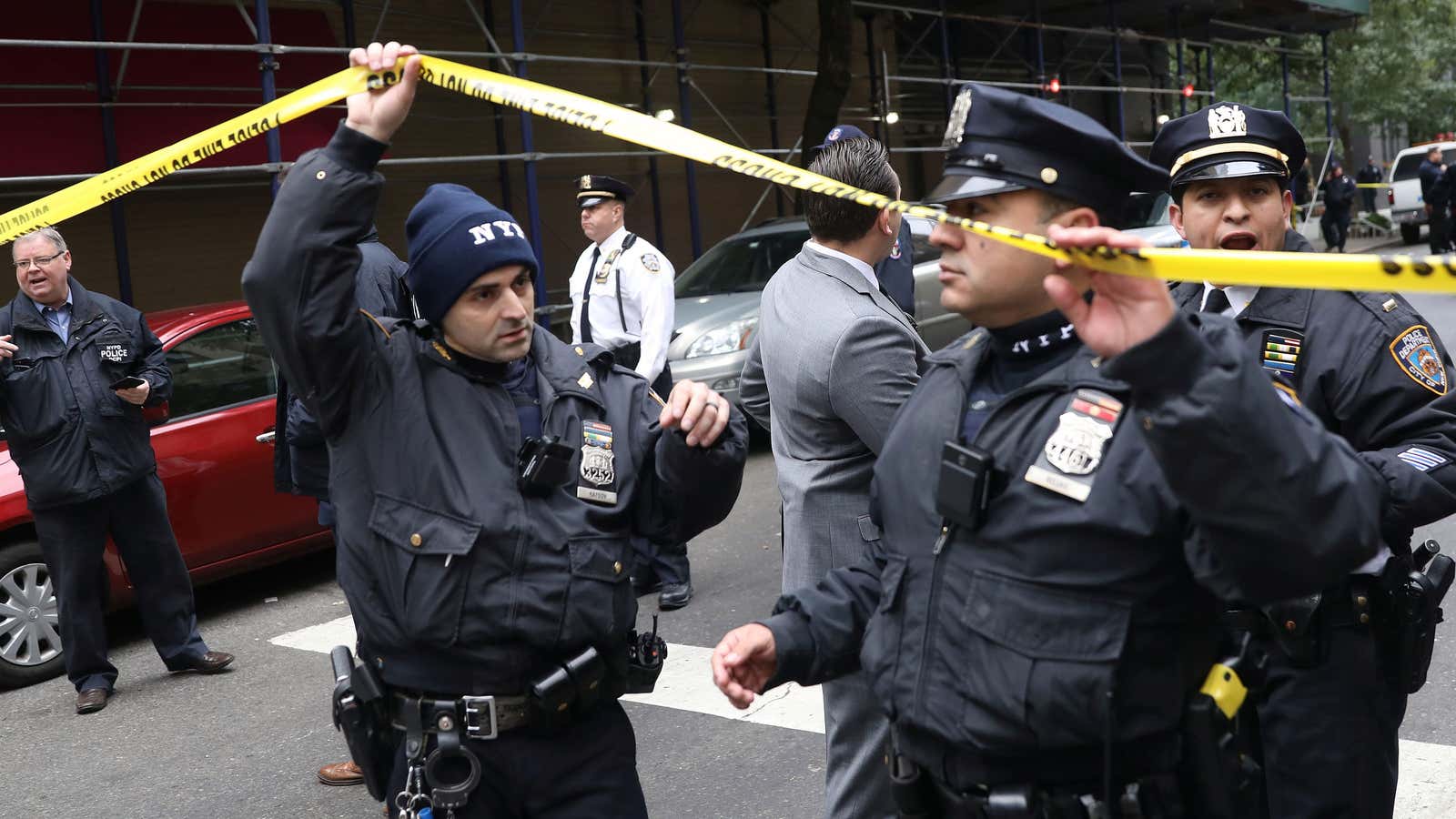It’s become the norm in the United States that when a suspect is named in a high-profile violent incident, fake profiles with their name immediately pop up on Facebook and Instagram. This happened with Nikolas Cruz, the Parkland shooting suspect, and Dimitrios Pagourtzis, the alleged Santa Fe shooter. It’s also happening with Cesar Sayoc, the man arrested in Florida for allegedly sending multiple explosive devices to prominent opponents of Donald Trump.
In the early afternoon on Friday (Oct. 26), Quartz found several Cesar Sayoc profiles on Instagram and Facebook. Inauthentic accounts are a big problem for the company, which took down more than 1 billion fake Facebook profiles in just six months.

A particularly robust account that was posting memes and photos aiming to imitate Sayoc disappeared fairly quickly, likely reported by other users who started commenting on the photos (some of whom appeared to believe it was the suspect’s real account).
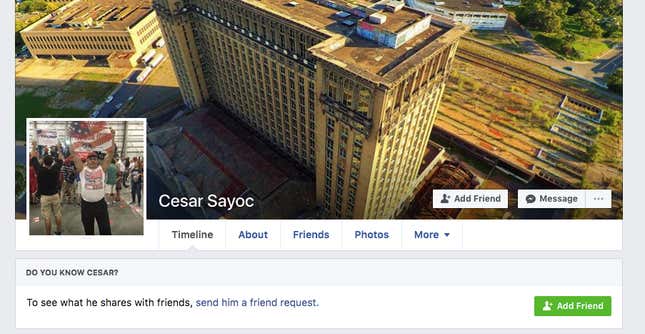

Facebook’s catches fake accounts before they go live, and it says its AI is exceptionally effective at catching fake profiles before they are reported, so we have no way of knowing how many actors attempted to create them in the hours since Sayoc was named as a suspect. Another way of establishing a fake profile is changing the name of an existing one—which is what appeared to have happened in this case. The account was connected to a Facebook page of a drone photography business—it asks followers to “like” the page of the drone business, and the person who calls himself “Sayoc Cesar” is listed as a team member on the business’ page. Quartz called the phone number listed on the page, and emailed the account, but received no response.
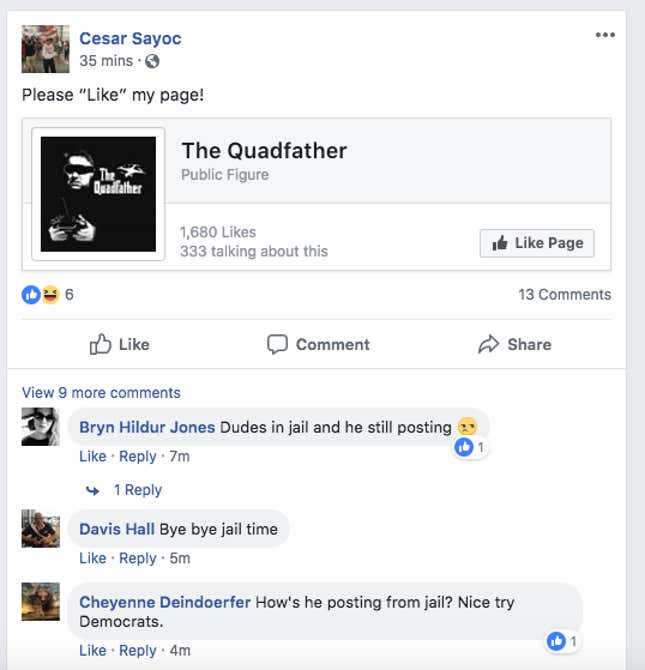
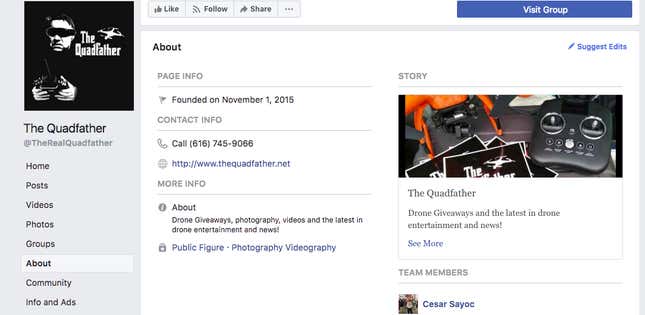
Sometimes people’s motivations in creating these fake profiles are clear: a twisted way of promoting a business, or stoking partisan animosity:
Sometimes, they are not. One man, seemingly based in the Philippines, appears to have changed his name on Facebook to Sayoc Cesar, reversing the suspect’s name, and seemingly has several Instagram accounts with variations of the name. They have zero or 1-2 photos, a tell-tale sign they are fake profiles.
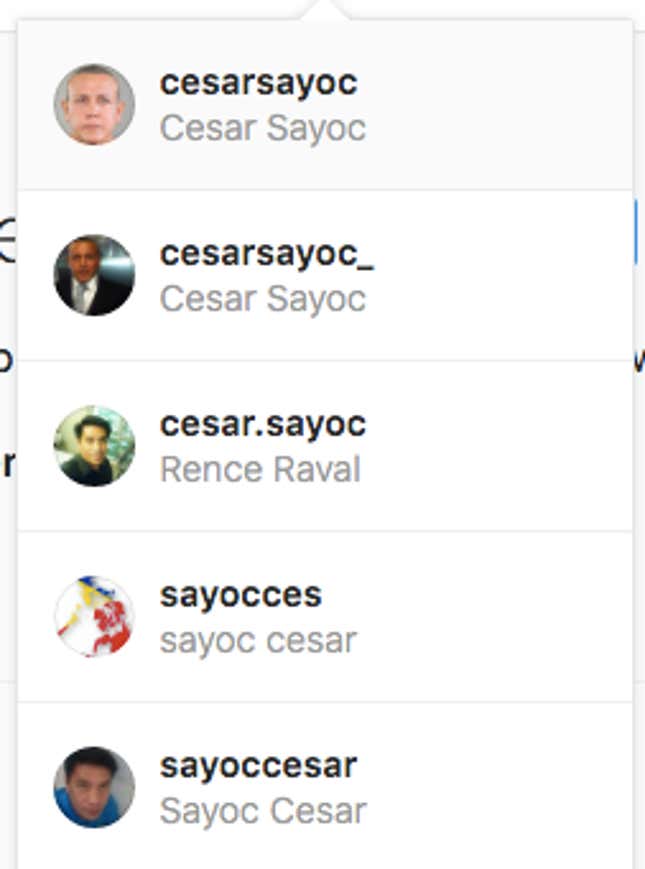
Quartz reached out to the man, but has not heard from him.
Facebook said that Sayoc’s accounts were immediately disabled when he was named, and that its teams started proactively looking for impersonator accounts. The company is relying on technology and user reports to take them down. “There is absolutely no place on our platforms for people who attempt such horrendous acts,” a spokesperson said. Facebook will “continue to remove content that praises or supports the bombing attempt or the suspect as soon as we’re aware.”
